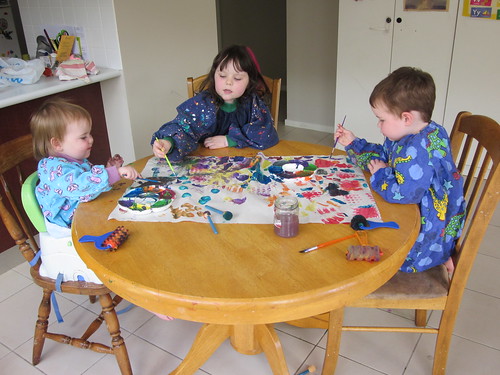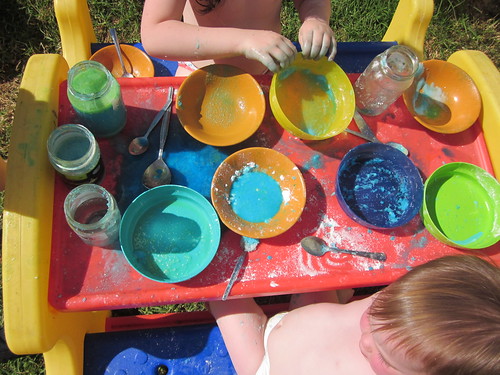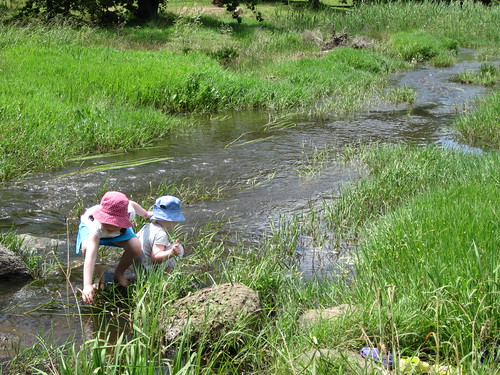
Today’s post is from the gorgeous and talented Shae from Yay for Home. Shae is an unschooler:
It is simply learning from life and following the lead and interests of your child. The underlining principal is that humans are born learners and learn best with the freedom to be self motivated and learn what, when and how they choose. Source: Yay for Home
Until I read Shae’s blog, I imagined unschooling would be completely random, messy and lacking direction, but it isn’t the case at all. There may be cases where it is indeed that, but then there are plenty of examples of schools that are like that too! She even talks about KLAs! (Key Learning Areas).
Today Shae shares how she organises educating her kids. Although I send my kids to school, I found this post inspiring. I am still an educator to my kids and Shae’s ideas on how to organise this has given me great new ideas to implement at our house!
Have a designated “classroom”.
Have an area of the house that has all of the art things, workbooks, puzzles etc in one place. This makes it easy for children to find what they are after and it makes it easy to pack up as well. Having a space that is uncluttered and has child size desks etc to create on is very important to growing minds. It’s empowering for them to be able to start or continue projects themselves with easy to access materials in familiar places and ask for your help if it’s required
Strew

Unschooling advocate Sandra Dodd coined the term “Strewing”. It basically means to add new stimulus and see where the child takes it. This could be recording a show you think your child might be interested in or borrowing some new books from the library or even setting up a table with food dye, vinegar, baking powder, shaving cream etc and letting the kids go for it. For younger children setting up the train track or making a play scene might be more appropriate.
Don’t get hung up on socialization
It’s the big one that people seem to worry about and it’s probably the need that is the easiest to fulfill. If they have friends who go to school make times to catch up on weekends and afternoons-and don’t forget school holidays! Find other home educating families with kids yours get along with. Hang out with them during the week. Go to local home ed meet up groups-there will be some! If you are lucky to live in an area like I do (Melbourne) you might also have family camps to go on if you like. Do “extra-curricular” activities like dancing or scouts.
Find new and interesting things to do.

This might sound obvious but it can be easy to stick with the things that you enjoy. This is great and to continue to visit places and activities that everyone enjoys and work for the family is important but don’t forget to look for new things from time to time. Think of your local orchestra, museum, park or market. How about an alpaca farm or behind the scenes tour of the zoo? What about going to visit a family member at their place of work or trying out a new craft supplies shop or library? There are so many recourses available that your child will learn from. Remember to tell them if you are home educating-you might just get in for free as the “teacher”!
Keep a diary and a calendar
Many home educators find that they might have a rhythm to their week but the activities and people you catch up with may vary greatly. If you are anything like me with multiple children it can get tricky to remember who is going where on what day and with who! I keep a full year planner on the wall, a month to month calendar near the kitchen and I have a weekly whiteboard that gets filled in every Sunday night (mostly) so I know what’s coming up.
Budget for “school” expenses
We go through a LOT of art supplies and have yearly memberships to the museum & zoo. We also go on a few camps each year and use a fair amount of petrol visiting friends and taking trips all over the city rather than school run in our own suburb. These expenses all need to accounted for so you don’t get caught short and miss out. Remember that school related expenses such as internet usage can also be claimed by registered home educators and in some states the school start bonus for both primary and high school is available as well.
Think outside the box

One of the main advantages of being school-free is that you can tailor learning to meet the needs of your individual children as the “teacher to child” ratio is much smaller and as a parent you are an expert on your own child. Your child hates readers or chapter books-how about comics or magazines or video games? Want to learn more about life cycles-why not grow some butterflies/moths/frogs at home? Learn about the stars by staying up late and using a telescope, learn about maths from having pocket money or baking a cake or learn how to speak Italian from your neighbor who was born in Italy. If your child likes to run take the classroom outside and get hands on, if they learn by listening you can download audio books or watch documentaries. Don’t limit yourself.
